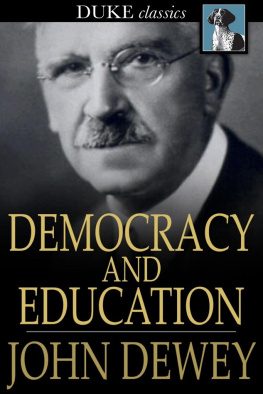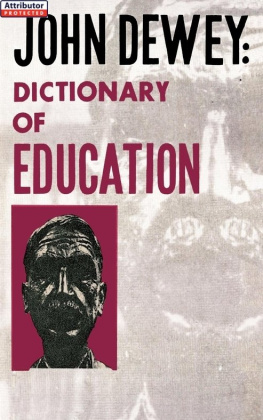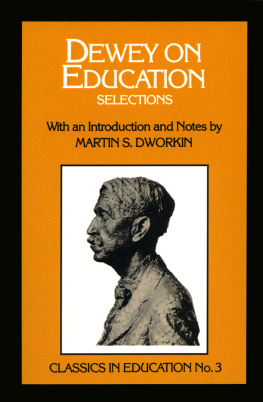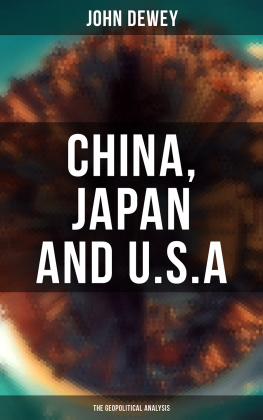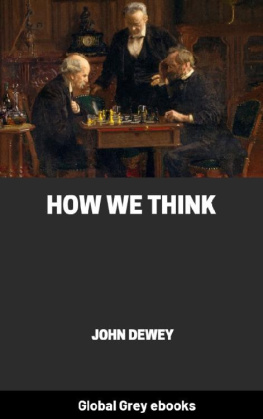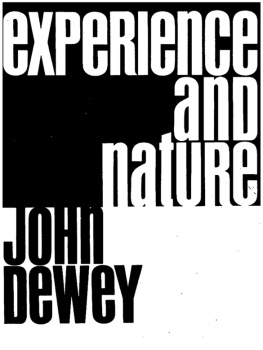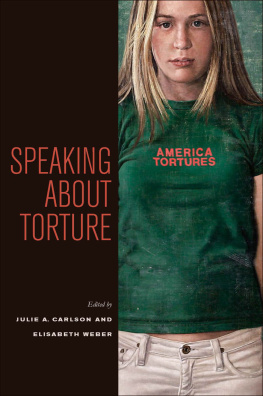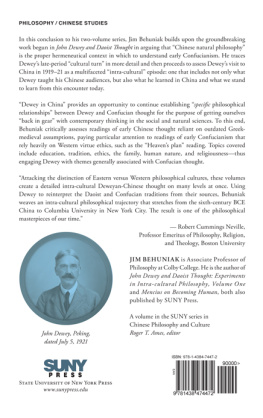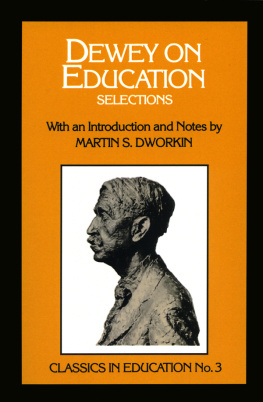John Dewey - Democracy and Education: An Introduction to the Philosophy of Education
Here you can read online John Dewey - Democracy and Education: An Introduction to the Philosophy of Education full text of the book (entire story) in english for free. Download pdf and epub, get meaning, cover and reviews about this ebook. year: 2012, publisher: Duke Classics, genre: Science. Description of the work, (preface) as well as reviews are available. Best literature library LitArk.com created for fans of good reading and offers a wide selection of genres:
Romance novel
Science fiction
Adventure
Detective
Science
History
Home and family
Prose
Art
Politics
Computer
Non-fiction
Religion
Business
Children
Humor
Choose a favorite category and find really read worthwhile books. Enjoy immersion in the world of imagination, feel the emotions of the characters or learn something new for yourself, make an fascinating discovery.
- Book:Democracy and Education: An Introduction to the Philosophy of Education
- Author:
- Publisher:Duke Classics
- Genre:
- Year:2012
- Rating:4 / 5
- Favourites:Add to favourites
- Your mark:
- 80
- 1
- 2
- 3
- 4
- 5
Democracy and Education: An Introduction to the Philosophy of Education: summary, description and annotation
We offer to read an annotation, description, summary or preface (depends on what the author of the book "Democracy and Education: An Introduction to the Philosophy of Education" wrote himself). If you haven't found the necessary information about the book — write in the comments, we will try to find it.
Democracy and Education: An Introduction to the Philosophy of Education — read online for free the complete book (whole text) full work
Below is the text of the book, divided by pages. System saving the place of the last page read, allows you to conveniently read the book "Democracy and Education: An Introduction to the Philosophy of Education" online for free, without having to search again every time where you left off. Put a bookmark, and you can go to the page where you finished reading at any time.
Font size:
Interval:
Bookmark:

An Introduction to the Philosophy of Education
First published in 1916
ISBN 978-1-62011-434-6
Duke Classics
2012 Duke Classics and its licensors. All rights reserved.
While every effort has been used to ensure the accuracy and reliability of the information contained in this edition, Duke Classics does not assume liability or responsibility for any errors or omissions in this book. Duke Classics does not accept responsibility for loss suffered as a result of reliance upon the accuracy or currency of information contained in this book.
1. Renewal of Life by Transmission.
The most notabledistinction between living and inanimate things is that theformer maintain themselves by renewal. A stone when struckresists. If its resistance is greater than the force of the blowstruck, it remains outwardly unchanged. Otherwise, it isshattered into smaller bits. Never does the stone attempt toreact in such a way that it may maintain itself against the blow,much less so as to render the blow a contributing factor to itsown continued action. While the living thing may easily becrushed by superior force, it none the less tries to turn theenergies which act upon it into means of its own furtherexistence. If it cannot do so, it does not just split intosmaller pieces (at least in the higher forms of life), but losesits identity as a living thing.
As long as it endures, it struggles to use surrounding energiesin its own behalf. It uses light, air, moisture, and thematerial of soil. To say that it uses them is to say that itturns them into means of its own conservation. As long as it isgrowing, the energy it expends in thus turning the environment toaccount is more than compensated for by the return it gets: itgrows. Understanding the word "control" in this sense, it may besaid that a living being is one that subjugates and controls forits own continued activity the energies that would otherwise useit up. Life is a self-renewing process through action upon theenvironment.
In all the higher forms this process cannot be kept upindefinitely. After a while they succumb; they die. Thecreature is not equal to the task of indefinite self-renewal.But continuity of the life process is not dependent upon theprolongation of the existence of any one individual.Reproduction of other forms of life goes on in continuoussequence. And though, as the geological record shows, not merelyindividuals but also species die out, the life process continuesin increasingly complex forms. As some species die out, formsbetter adapted to utilize the obstacles against which theystruggled in vain come into being. Continuity of life meanscontinual readaptation of the environment to the needs of livingorganisms.
We have been speaking of life in its lowest terms as aphysical thing. But we use the word "Life" to denote the wholerange of experience, individual and racial. When we see a bookcalled the Life of Lincoln we do not expect to find within itscovers a treatise on physiology. We look for an account ofsocial antecedents; a description of early surroundings, of theconditions and occupation of the family; of the chief episodes inthe development of character; of signal struggles andachievements; of the individual's hopes, tastes, joys andsufferings. In precisely similar fashion we speak of the life ofa savage tribe, of the Athenian people, of the American nation."Life" covers customs, institutions, beliefs, victories anddefeats, recreations and occupations.
We employ the word "experience" in the same pregnant sense. Andto it, as well as to life in the bare physiological sense, theprinciple of continuity through renewal applies. With therenewal of physical existence goes, in the case of human beings,the recreation of beliefs, ideals, hopes, happiness, misery, andpractices. The continuity of any experience, through renewing ofthe social group, is a literal fact. Education, in its broadestsense, is the means of this social continuity of life. Every oneof the constituent elements of a social group, in a modern cityas in a savage tribe, is born immature, helpless, withoutlanguage, beliefs, ideas, or social standards. Each individual,each unit who is the carrier of the life-experience of his group,in time passes away. Yet the life of the group goes on.
The primary ineluctable facts of the birth and death of each oneof the constituent members in a social group determine thenecessity of education. On one hand, there is the contrastbetween the immaturity of the new-born members of the group its future sole representatives and the maturity of the adultmembers who possess the knowledge and customs of the group. Onthe other hand, there is the necessity that these immaturemembers be not merely physically preserved in adequate numbers,but that they be initiated into the interests, purposes,information, skill, and practices of the mature members:otherwise the group will cease its characteristic life. Even ina savage tribe, the achievements of adults are far beyond whatthe immature members would be capable of if left to themselves.With the growth of civilization, the gap between the originalcapacities of the immature and the standards and customs of theelders increases. Mere physical growing up, mere mastery of thebare necessities of subsistence will not suffice to reproduce thelife of the group. Deliberate effort and the taking ofthoughtful pains are required. Beings who are born not onlyunaware of, but quite indifferent to, the aims and habits of thesocial group have to be rendered cognizant of them and activelyinterested. Education, and education alone, spans the gap.
Society exists through a process of transmission quite as much asbiological life. This transmission occurs by means ofcommunication of habits of doing, thinking, and feeling from theolder to the younger. Without this communication of ideals,hopes, expectations, standards, opinions, from those members ofsociety who are passing out of the group life to those who arecoming into it, social life could not survive. If the memberswho compose a society lived on continuously, they might educatethe new-born members, but it would be a task directed by personalinterest rather than social need. Now it is a work ofnecessity.
If a plague carried off the members of a society all at once, itis obvious that the group would be permanently done for. Yet thedeath of each of its constituent members is as certain as if anepidemic took them all at once. But the graded difference inage, the fact that some are born as some die, makes possiblethrough transmission of ideas and practices the constantreweaving of the social fabric. Yet this renewal is notautomatic. Unless pains are taken to see that genuine andthorough transmission takes place, the most civilized group willrelapse into barbarism and then into savagery. In fact, thehuman young are so immature that if they were left to themselveswithout the guidance and succor of others, they could not acquirethe rudimentary abilities necessary for physical existence. Theyoung of human beings compare so poorly in original efficiencywith the young of many of the lower animals, that even the powersneeded for physical sustentation have to be acquired undertuition. How much more, then, is this the case with respect toall the technological, artistic, scientific, and moralachievements of humanity!
Font size:
Interval:
Bookmark:
Similar books «Democracy and Education: An Introduction to the Philosophy of Education»
Look at similar books to Democracy and Education: An Introduction to the Philosophy of Education. We have selected literature similar in name and meaning in the hope of providing readers with more options to find new, interesting, not yet read works.
Discussion, reviews of the book Democracy and Education: An Introduction to the Philosophy of Education and just readers' own opinions. Leave your comments, write what you think about the work, its meaning or the main characters. Specify what exactly you liked and what you didn't like, and why you think so.

